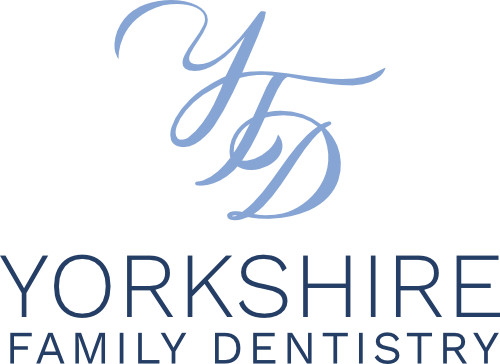A Lifelong Smile: The Importance of Dental Care At Every Age

Having a healthy smile is a key part of self-care throughout our lifetime. From the moment our first baby teeth emerge until our adult teeth settle in, and through adulthood and beyond, it is essential to have a comprehensive and holistic approach to lifelong dental care. From regular visits to the dentist to proper brushing and flossing techniques, lifelong tooth care is an important part of maintaining overall health and wellbeing. Understanding how our teeth develop over time and what dental options are available for older adults can help us keep our smiles healthy and strong for many years to come. In this blog post, we will explore the different stages of tooth development, from baby teeth to wisdom teeth, and discuss the importance of lifelong dental care. We’ll also provide an overview of tooth replacement options for older adults.
Tooth Development From Baby Teeth to Adult Teeth
As we grow from infancy into adulthood, our teeth undergo a remarkable journey of development and growth. It all begins with the emergence of our baby teeth, also known as primary teeth. These small, temporary teeth start appearing around six months of age and continue to come in until about age three. It’s important to provide proper dental care for children during this time, as these baby teeth lay the foundation for healthy adult teeth.
As we enter childhood and adolescence, our baby teeth start to loosen and fall out, making way for our permanent teeth. This transition can be both exciting and nerve-wracking, as we eagerly await the arrival of our adult teeth. Over the course of several years, these permanent teeth emerge one by one, starting with the front incisors and followed by the molars and canines.
During this period of tooth development, it’s essential to continue practicing good oral hygiene and maintaining regular dental check-ups. Your dentist at Yorkshire Family Dentistry can monitor the growth and alignment of your teeth, address any concerns or abnormalities, and provide guidance on proper dental care for older patients.
Understanding the basics of tooth development is key to ensuring a lifetime of healthy smiles. By providing proper dental care for children and continuing to prioritize oral health as we age, we can enjoy strong, functional teeth that last a lifetime. So, embrace the journey of tooth development and take the necessary steps to care for your smile every step of the way.
Caring for Adult Teeth
As we transition from childhood to adulthood, our dental needs and challenges change. While we may no longer be dealing with the excitement of losing baby teeth, new concerns arise that require our attention. One common issue for adults is tooth decay, which can result from poor oral hygiene habits, consuming sugary foods and drinks, or neglecting regular dental check-ups.
To prevent tooth decay, it’s crucial to maintain good oral hygiene practices. Brushing your teeth at least twice a day with fluoride toothpaste and flossing daily are essential habits. Additionally, using mouthwash can help kill bacteria and freshen your breath.
Another common issue among adults is gum disease. Poor oral hygiene, tobacco use, certain medications, and hormonal changes can all contribute to gum disease. Symptoms include red, swollen gums, bleeding during brushing or flossing, and persistent bad breath.
Preventing gum disease involves maintaining good oral hygiene, but it’s also important to be aware of other risk factors. Regular dental check-ups and professional cleanings are key to detecting and treating gum disease early on.
Lastly, tooth sensitivity is another common issue that adults may face. It can be caused by worn enamel, receding gums, tooth decay, or even teeth grinding. To alleviate sensitivity, you can try using desensitizing toothpaste or visiting your dentist for further treatment options.
Taking care of your teeth as an adult means being proactive in preventing common issues like tooth decay, gum disease, and tooth sensitivity. By maintaining good oral hygiene, staying aware of risk factors, and visiting your dentist regularly, you can enjoy a healthy smile for years to come. Don’t neglect your dental health – prioritize it and reap the benefits of a beautiful, strong smile.
What to Know About Wisdom Teeth
Wisdom teeth, also known as third molars, are the last teeth to develop in our mouths. They typically emerge between the ages of 17 and 25, hence the name “wisdom teeth” as they appear during the age of increased wisdom and maturity. However, the arrival of wisdom teeth can be a mysterious and sometimes uncomfortable process.
For some lucky individuals, wisdom teeth erupt without causing any issues. However, for many people, the eruption of wisdom teeth can be accompanied by pain, swelling, and other complications. This is because our mouths have evolved to be smaller than our ancestors’, making it difficult for these extra teeth to find enough space to fully emerge.
In some cases, wisdom teeth may become impacted, meaning they are unable to fully break through the gums. This can lead to infections, cysts, and damage to nearby teeth. In these situations, extraction of the wisdom teeth may be necessary.
It’s important to note that not everyone needs to have their wisdom teeth removed. The decision to remove them will depend on various factors, including the alignment of the teeth, the size of the jaw, and the presence of any symptoms or complications.
If you’re experiencing pain or discomfort due to your wisdom teeth, it’s best to consult with your dentist or oral surgeon. They will evaluate your specific situation and provide you with the best course of action. Remember, understanding the arrival and potential issues associated with wisdom teeth can help demystify the process and ensure that you take the necessary steps to maintain a healthy smile.
Implants, Dentures, and Bridges
Losing a tooth as an older adult can be a daunting experience, but there are several tooth replacement options available to restore your smile and confidence. Implants, dentures, and bridges are three common solutions that can help fill in the gaps left by missing teeth.
Dental implants are a popular choice because they offer a permanent and natural-looking solution. The implant is surgically placed in the jawbone, where it fuses with the bone to create a strong foundation for a replacement tooth. Implants are durable, comfortable, and function just like natural teeth.
Dentures are another common option for replacing missing teeth. They consist of a removable set of artificial teeth attached to a gum-colored base. Dentures can be partial, replacing a few missing teeth, or full, replacing all of the teeth in either the upper or lower jaw. They provide a cost-effective solution for restoring your smile.
Bridges are a fixed dental restoration that uses adjacent teeth as support to bridge the gap left by a missing tooth. The adjacent teeth are prepared and capped with crowns, with a false tooth or pontic suspended between them. Bridges are a non-surgical option that can improve your bite, restore your smile, and prevent adjacent teeth from shifting.
The choice of tooth replacement option will depend on various factors such as your overall oral health, budget, and personal preferences. Consulting with your dentist at Yorkshire Family Dentistry will help you determine which option is best for you. Remember, replacing missing teeth is not only important for aesthetics but also for maintaining the functionality of your mouth and jaw.
The Importance of Lifelong Dental Care
Having a healthy smile is a lifelong endeavor, and it’s never too late to start prioritizing your dental care. Maintaining a healthy smile not only improves your oral health but also contributes to your overall well-being. Here are some tips for maintaining a healthy smile at any age:
- Practice good oral hygiene: Brush your teeth at least twice a day with fluoride toothpaste and floss daily. This helps remove plaque and prevent tooth decay and gum disease.
- Visit your dentist regularly: Regular dental check-ups and cleanings are essential for early detection and prevention of dental issues. Your dentist can also provide guidance on proper dental care specific to your needs.
- Watch your diet: Limit your intake of sugary and acidic foods and drinks, as they can contribute to tooth decay. Opt for a balanced diet rich in fruits, vegetables, and calcium-rich foods for strong teeth.
- Don’t neglect your gums: Gum health is crucial for maintaining a healthy smile. Brush your gums gently and use mouthwash to kill bacteria and freshen your breath.
- Protect your teeth: If you participate in sports or grind your teeth at night, consider wearing a mouthguard or getting a custom-fitted nightguard to protect your teeth from damage.
- Avoid tobacco and excessive alcohol consumption: Tobacco use and excessive alcohol consumption can increase the risk of oral cancer, gum disease, and tooth loss. Quitting smoking and moderating alcohol intake can significantly improve your oral health.
Remember, dental care is a lifelong commitment. By following these tips and making dental care a priority at every stage of life, you can enjoy a healthy and beautiful smile for years to come. Schedule an appointment at Yorkshire Family Dentistry today!
